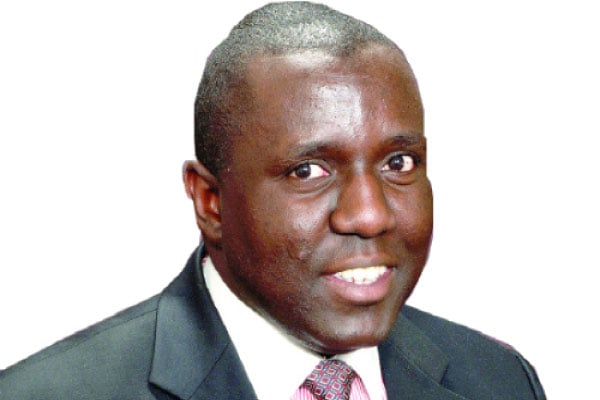Prime
Omicron variant and China debt crisis

Author: Mr Karoli Ssemogerere is an Attorney-at-Law and an Advocate.
What you need to know:
Gordon Brown, the former British Chancellor (2007-2010) has already observed that while vaccination uptake in the west is 70 percent it’s just seven percent in the developing world.
The weekend came with a piece of acerbic news, there was yet a new Covid-19 variant first annotated in South Africa and seven other neighbouring countries. Then quickly news that the variant had already (as expected) made landfall in Europe prompting a new round of restrictions. Prof Olivier, who heads South Africa’s Covid testing protocols, pleaded for aid from billionaires in South Africa as he correctly noted two things.
Fresh Covid eruptions would destabilise South Africa’s economy. Second, South Africa was paying a very high price for being open about the new variant. For starters, South Africa has a modest vaccination uptake; just 42 percent of the population has at least one jab, the number is only 60 percent for persons aged 60 and over. Gordon Brown, a former British prime minister , has already observed that while vaccination uptake in the west is 70 percent, its just seven percent in the developing world.
Yet ironically, Covid morbidity has been higher in the West than in the developing world (the exceptions being India which chose to export vaccines before jabbing its population and Brazil which spent several months denying the pandemic. Either approach has some public health rationale. To measure Covid morbidity in Tanzania, famous for its tight lid on such news, the Wall Street Journal ran a feature on the boom in the coffin industry, an average coffin maker selling 30 coffins a week up from just seven.
Omicron has come at a challenging time. By some measures some parts of the global economy are overheated. Supply constraints have pushed up inflation again in the West but so has the recovering economy that has struck oil prices ahead of a cold winter. Future oil contracts for January-February-March 2022 are averaging $71.00 a barrel, about $13 ahead of what was expected until 2023. Oil $100 a feature of the 2010-2012 regime if it arrives will cause a global economic catastrophe as the tax man everywhere has been levying fuel upfront to balance their books. Motorists everywhere from the United States, United Kingdom to next door Kenya are angry with prices at the pump last seen in 2004-2005. President Joe Biden has ordered release of oil reserves to stabilise prices rather than supply and may attract retaliatory conduct from OPEC.
Ugandans this week were treated to two interesting episodes in one location, Entebbe International Airport. First episode was an outcry over terms of a $352 million loan signed in 2015 to rehabilitate the airport on the back of a $100 million upgrade a few years earlier. Passengers flying through Entebbe report a mixture of confusion, technology (advanced x-ray technologies deployed by the tax service routinely smoke out small items for cumbersome import duties), or even mayhem arising from Corvid 19 protocols on arrival and departure. For years there was a misconception that China money was free money, it attracted few conditions. Besides the Chinese were not very concerned about “soft issues” a basket of terms ranging from governance, respect for human rights, social infrastructure etc.
China smartly played along relying on excess foreign exchange reserves (in recent times, China has been the largest holder of US treasuries) lending far and wide to shore up its economy in leaner times. Leaner times have arrived, lower growth, ageing population and China is increasingly monitoring its debt portfolio with great interest. Most of it is taken care of by user fees, toll fees like those on the Entebbe expressway, indirect taxes like the OTP tax where it exists etc. Security and performance is monitored on large escrow accounts at the Central Bank. In the case of Entebbe, a raw nerve was hit when it was disclosed, the Chinese had rights over Civil Aviation Authority (the landlord)’s domestic accounts at Stanbic Bank. CAA’s publicist was at a loss of words to describe complicated Chinese mercantile law terms.
And then in typical Uganda fashion, social media exploded with a one Tamale selling grasshoppers aboard a Uganda Airlines flight to Dubai. The Transport Minister, Gen Katumba Wamala, without responding to the China story struck, suspending the fly crew and holding the hapless comedian selling grasshoppers a local delicacy accountable. Expect a lot of China angst to continue for sometime; Covid originating from China and now China debt camouflage for our own indiscretions.
Mr Ssemogerere is an Attorney-At-Law and an Advocate. [email protected]




